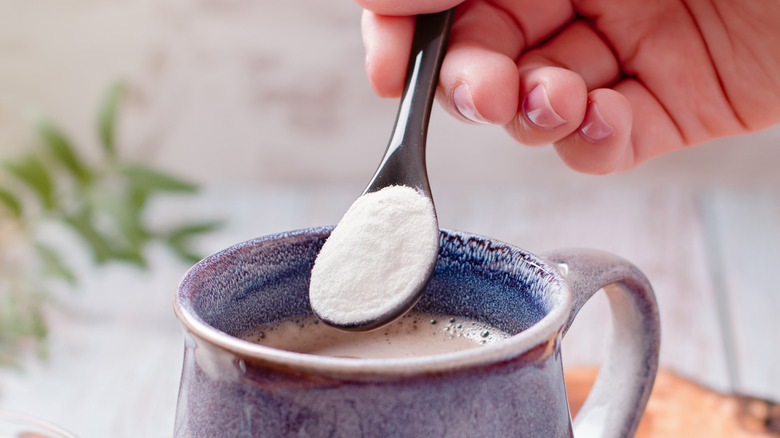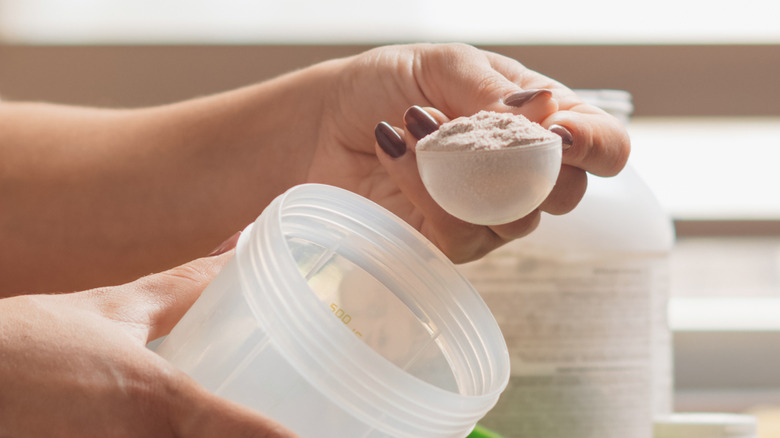
Most individuals are aware that adding sugar to coffee is detrimental to health. Nevertheless, this hasn’t deterred society from inventing new and unconventional methods to spice up coffee, both literally and figuratively. With the surge in popularity of various fad diets and health influencers, the list of potential coffee additives and enhancers continuously expands. (Read this to find out if you should be adding butter to your morning coffee.)
For some, adding a little extra something to their coffee serves as an efficient way to boost performance. This explains why the creatine-coffee combination has gained popularity among physically active and health-conscious coffee enthusiasts. Some individuals mix a scoop or spoonful of creatine into a freshly brewed cup. However, when it comes to the alleged benefits of consuming caffeine and creatine together, the conclusions aren’t as straightforward as one might assume, as different studies yield varying results.
Importantly, it’s advisable to be near a restroom when trying this combination, as consuming creatine and caffeine together might impact your digestive system in less-than-pleasant ways.
Caffeine and creatine: a one-two punch to your digestion?

Individually, both creatine and caffeine have been observed to affect bowel movements in some people. Nearly a third of the participants in a 2008 study published in Research in Sports Medicine experienced diarrhea after taking two 5-gram doses of creatine, with the risk of diarrhea increasing by 56% when the dosage was doubled.
Caffeine, on the other hand, is sometimes known to cause an upset stomach, according to a 2022 study in the International Journal of Sport Nutrition and Exercise Metabolism. This may be attributed to its peristaltic effect, causing food to move through the bowels, potentially leading to more frequent bathroom visits (as per a 2020 study in Nutrients).
As explained in a 2017 article in the Journal of Strength and Conditioning Research, caffeine inhibits muscle relaxation, whereas creatine does the opposite. Moreover, caffeine is a known diuretic, while creatine may promote water retention (which explains why some creatine users experience slight weight gain). Therefore, when these two substances are consumed together, their conflicting effects might trigger gastrointestinal distress, although more research is necessary to confirm this.
Other effects of consuming creatine and coffee together

But what about the other potential benefits of a creatine-caffeine mixture?
In a 2024 study published in Nutrients, resistance-trained athletes who consumed 5 grams of creatine nitrate and 400 milligrams of caffeine daily for a week showed improved performance in cognitive tasks, without any side effects. Conversely, authors of a 2022 review in the International Journal of Sport Nutrition and Exercise Metabolism noted that when creatine and caffeine are consumed together over time, the latter could negatively impact the performance-enhancing effects of the former. According to another 2022 review in the Journal of the International Society of Sports Nutrition, chronic consumption of high doses of caffeine could be detrimental to creatine’s otherwise positive effects on energy production and muscle performance.
Before trying a caffeine-creatine combination, a word of caution: Non-steroidal anti-inflammatory drugs (NSAIDs) are known to potentially affect kidney function, so it’s advisable to avoid taking them with caffeine, creatine, or both. Additionally, be mindful of potential side effects, especially if you have any existing medical conditions.
Ultimately, it’s wise to consult a medical professional before making creatine-infused coffee a regular part of your diet, as it may be in your best interest to enjoy creatine and coffee separately. (Don’t worry, there are other ways to make your morning coffee healthier.)
“`




